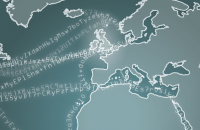VIDEO ON DEMAND

Infocredit Professional Education (IPE) is the fast-growing training division of the leading risk management and business information provider, Infocredit Group.
POPULAR UPCOMING COURSES
ΔΙΟΙΚΗΣΗ ΑΝΘΡΩΠΙΝΟΥ ΔΥΝΑΜΙΚΟΥ ΚΑΙ ΕΡΓΑΤΙΚΗ ΝΟΜΟΘΕΣΙΑ
Jun 07 - Jun 07, 2024 6 hr
CREDIT RISK MANAGEMENT & DEBT COLLECTION
May 21 - May 22, 2024 11.5 hr
WORKPLACE CONFLICT MANAGEMENT
May 28 - May 28, 2024 6 hr
NEWSLETTER
© 2024 Infocredit Professional Education. All Rights Reserved | Part of Infocredit Group | Terms & Conditions | Privacy Notice
Design & Development by Darkpony







